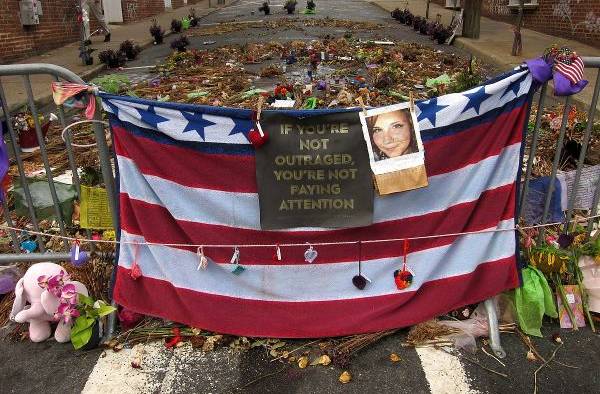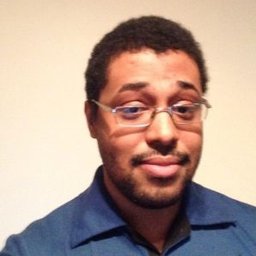Exclusive Interview: Susan Bro Talks Heather Heyer Foundation, Charlottesville, Combating Bigotry

On August 12, 2017, Heather Heyer was murdered in Charlottesville, Virginia by a white supremacist who drove a vehicle into a crowd of counter-protestors during the infamous Unite the Right rally.
The Vice documentary Race and Terror captures the vitriol of those who descended upon Charlottesville during the summer of 2017 intending to spread their messages of hate against the non-white populations of the United States of America.
Recently, Citizen Truth was able to speak to Susan Bro, the mother of Heather Heyer regarding the anniversary of her death, the Heather Heyer Foundation, and how she feels society can combat bigotry.
How did the Heather Heyer Foundation begin and what moved you to do it after events in Charlottesville?
A friend of the family set up a GoFundMe when Heather was killed, she was actually a childhood friend of my kids…that (the GoFundMe) grew pretty quickly while we were planning the funeral. I closed it the day after the funeral, but money kept pouring in. (After a plethora of small-dollar donations) I went to Alfred Wilson, who was Heather’s supervisor, and asked him to help me do something responsible with this money. So we formed the foundation right away.
(At the 2017 Video Music Awards) I stood on stage and announced the formation of the Heather Heyer Foundation. It was originally going to be a two scholarship foundation one for Heather’s high school (William Monroe High School in Stanardsville, Virginia) and one for Charlottesville High School.
Shutterfly donated $50,000 on The Ellen Show. Alfred and I set our sights a little higher and decided to try and build an endowment to build a lasting scholarship program…over the last three years we’ve given out more than $20,000 in scholarships. We’re going to give out another $8,000 this year.
Did you know Heather was going to the Unite the Right rally beforehand?
No, she was 32-years-old, I treat my adult with a tell me what you think I need to know; otherwise, I’m not going to bug ya. I know they (white nationalists) were there (Charlottesville) at least one other time and there were skirmishes with the law, not with the white nationalists, but with the counter-protestors.
How much did you know of this group (Alt-Right, white nationalists) before the Unite the Right rally?
Growing up in the south, everybody knew about the KKK (Ku Klux Klan), but I didn’t know anything about the others. After Heather was murdered I made it a point to read up and learn to recognize faces of leaders, their names, and some of that just for self-protection. There are always people emerging from the woodwork on that front.
I remember from watching you and her friends speak shortly after everything happened how politics were important to Heather, and that she was a strong Bernie Sanders supporter. Are the political aspects of these issues something you look to carry over within the foundation, and all the work you have been doing since?
We seek justice, we seek positive solutions, we really try not to get involved in elections, strictly because that comes and goes, and that’s not entirely the issue. The issue that we’re looking to deal with is more changing people’s hearts, policies are reflective of what happens with the public — if you reach the public, if you reach individuals with a ‘heart movement’ then you can affect policy long-term.
The political scene is volatile, it can get pretty nasty, so we try to stay apolitical as a foundation. I as a person, of course, vote; we strongly recommend people vote, but don’t put all your faith in voting…We’re looking for long-term systemic changes.
In the past couple of weeks, there have been unfortunate bouts of anti-Semitism popping up, is that something you feel is an issue that needs to be talked about more in the United States?
That is a centuries’ old problem, yes it is part of a hate complex. Any time you have someone who hates another group just because they are different in some ways, then you have a problem. It’s still hate-motivated, and it’s the same set of hate from white nationalists.
When individuals like Nick Cannon (who has since apologized for his anti-Semitic remarks) and Louis Farrakhan are spreading the same messages, is that also something you feel needs to be talked about a little bit more?
I don’t know enough about those two individuals, I would say ‘hate never wins.’ Obviously, neither one of them has never reached out to me. I try to stay away from people who deal in hate. I’m trying to deal in understanding and commonality and mutual humanity.
When you were speaking to Congress you brought up anti-racism and how that was different from being a non-racist. Could you talk about why you feel that is important in dealing with issues of hate, especially within the United States?
…People have to take into account their own biases to move past them. To not acknowledge them, to pretend they don’t exist is what non-racism is. Instead, we need to be anti-racist and acknowledge and celebrate peoples’ differences. Then we can move to a place where we are working together, and making use of our differences. We’re stronger when we are diverse.
Would you say that we as humanity within the United States have more or less in common with each other?
I think we all have a lot in common. We have a love for family, some sort of faith; even if we don’t do church and I don’t do church. We have concerns for our children, we have a desire to live in peace — with a roof over our heads, and security. Those are issues important to everyone.
When you have been doing work with your foundation have you found that when you’re trying to reach common ground with people from different backgrounds, that these commonalities between us are what brings us together, or is there still work to do there?
I would say that we have a lot of work to do to get past stereotypes and biases. A lot of people go their whole life without interacting with people that aren’t like them, or on a superficial scale…Even if you work with someone that kind of friendship or relationship isn’t the same as having a friend of a different faith or a friend of a different color outside of work. How much are you respecting that person? How much are you understanding or hearing what they are saying?
We have a lot of work because we often don’t know what we don’t know.
The last thing you said is extremely interesting, is that where you feel the hatred comes from? Is it ignorance from stereotyping an entire group of people, or making up in their minds what an entire group differing from them is like?
Some of it is. It depends on who you are talking about. Some of it is from people who have encountered other people of very bad intentions and have built up memories from things that have happened in the past, and have put that feeling, stereotype, or bias on everyone they meet who looks like that.
People are complex, and there isn’t a quick or simple answer to any of this.
Have you come across people in your work who have those biases because they had negative experiences with people of a different group? If so how did you attempt to talk them through it?
I’m not in a place where I work on a one on one basis like that. I tend to end up speaking to larger groups or speaking online. I did however just take life coach training, which will help me work with individuals better.
I have talked to people later who told me I got the ball rolling on something, and I’m like “Oh, good” because I’m not sure what effect I’m having when I talk to people. One of the things I say in speeches is, “we are all responsible for getting started on an action.”
…Even in my mid-sixties, I have a lot to learn. I’m working on it and trying to work hard and fast because I am in my mid-sixties.
…I did a panel discussion last night with people from the (Oak Creek) Sikh temple shooting from eight-years-ago…we’ve had incident after incident of hate crimes in this country and yet we’re still dealing with hate crime. It doesn’t go away easily, it doesn’t go away quickly. Fear and economic issues pull it (hate) to the front, and that’s the overt racism. The covert racism is the iceberg below the surface, that still needs to be worked.
We also need to change systems to make them more equitable. It’s just a lot to deal with, yet we need to move with intent and some purpose forward.
Do you feel the issues of hate and misunderstanding comes from economic instability and not knowing people who don’t look different from you?
I used to think that, and studies have shown that it isn’t really the biggest issue. A lot of people that I know who have come out of the Alt-right or Neo-Nazi movements say they originally got into them because they needed something to belong to. They needed something to feel like they needed some sort of power, a way to blame someone else for their issues, but mostly a need to belong to something to feel like they are in solidarity with someone else.
Christian Picciolini wrote the book White American Youth where he talks about how he was recruited at a young age into the skinhead movement. It makes us think that we need to aware of what’s happening with our kids, there tend to be recruitment efforts from kids as young as ten years old, often happening online.
…Most of it (online recruitment) isn’t going to start with direct hate, it will start out with humor and making fun of other groups, racial stereotypes, and other nasty stuff that ramps up fairly quickly.
Throughout the rest of the interview, Susan Bro spoke about the importance of critical thinking adding, “We have to teach people of all ages to critically think and fact-checking People of all ages need to be aware of critical thinking skills,” when speaking on ways to combat messages coming from hate groups.
Susan would also say that families should help build critical thinking skills within their children however cautioning, “All of us can buy into hatred. We can’t blame our childhood or what happened with our parents,” when speaking about individuals developing an ideology of hatred after growing up in a difficult family environment.
She would also state that she sees a correlation between hatred based on melanin to hatred towards the LGBTQ community.
The interview would end with Susan Bro detailing her method for breaking through to people is listening to them explain why they think the way they do, even if their rationale is upsetting. Responding to those individuals with facts and questions that make them question their notions in a one on one environment has proven successful.









